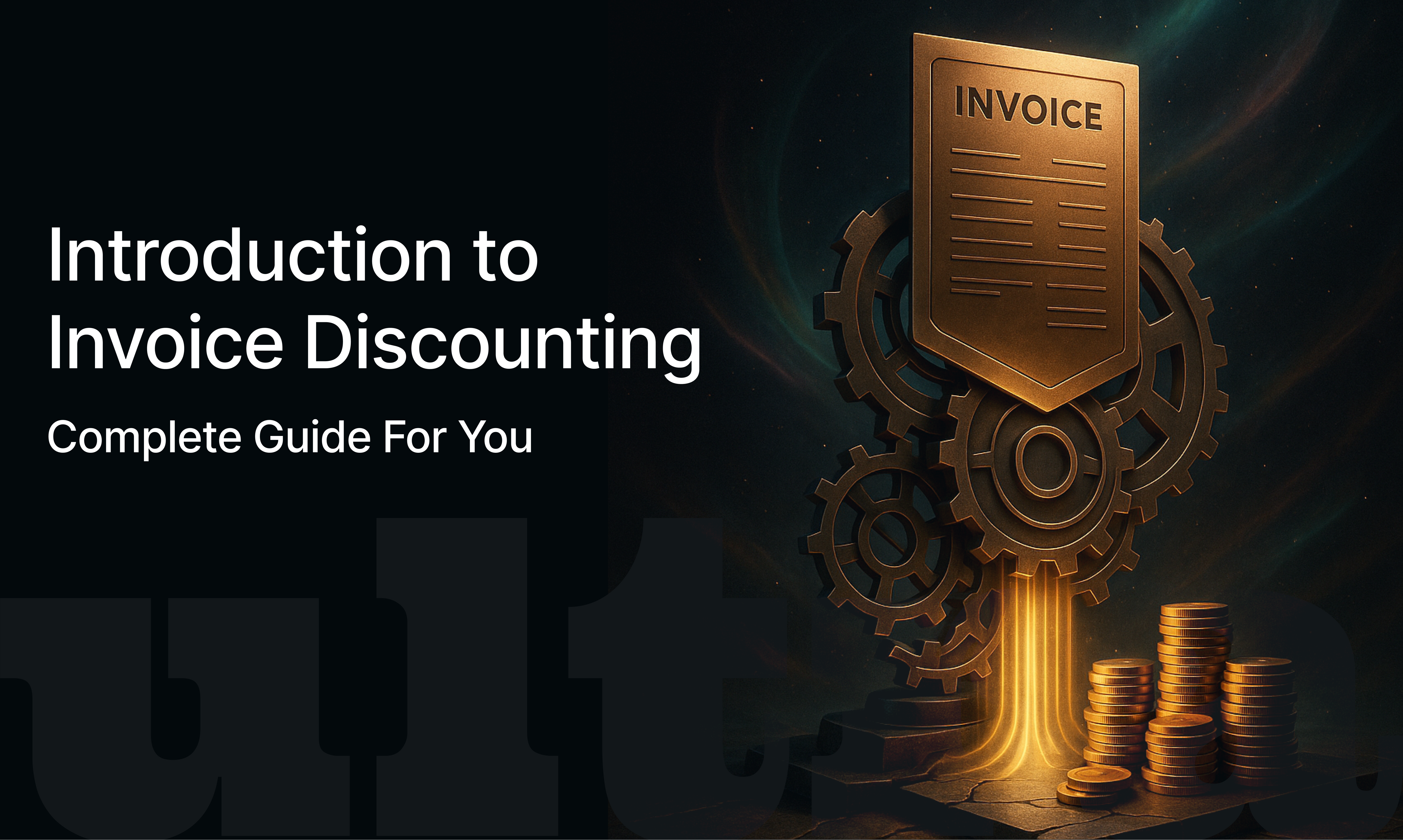Introduction to Invoice Discounting: A Complete Guide
26 August 2025 · Sachin Gadekar
Discover invoice discounting, how it works, benefits, risks, and how you can invest in it with Ultra. Beginner-friendly guide for investors.

What is Invoice Discounting?
In today’s fast-moving financial world, both businesses and investors are looking for smarter ways to manage cash flow and returns. One such opportunity is invoice discounting — a short-term financing tool for businesses and an alternative fixed-income investment for individuals.
For investors on Ultra, invoice discounting opens the door to a unique asset class that combines predictable returns with relatively shorter tenures compared to traditional bonds or fixed deposits. In this guide, we’ll break down everything you need to know about invoice discounting, how it works, its benefits, risks, and why it can be a valuable addition to your portfolio.
Invoice discounting is a financing method where businesses use their unpaid customer invoices to raise short-term funds. Instead of waiting 30–90 days for clients to pay, they approach a platform (like Ultra) that connects them with investors willing to fund those invoices in exchange for a return.
For Businesses: It provides instant working capital without taking a traditional loan.
For Investors: It creates an opportunity to earn stable returns in a short time frame.
Example: Suppose an SME issues an invoice worth ₹10,00,000, payable in 60 days. Instead of waiting, the business raises funds via invoice discounting. An investor provides ₹9,70,000 upfront. When the client pays the full ₹10,00,000 after 60 days, the investor earns the difference (₹30,000) as return.
How Does Invoice Discounting Work?
The process is simple and streamlined:
Business raises an invoice to its customer.
The business lists the invoice on a platform like Ultra.
Investors fund the invoice at a discounted value.
The customer pays the invoice on the due date.
The investor receives their principal plus returns.
For a more detailed walkthrough, read our guide: Benefits Of Invoice Discounting
Benefits of Invoice Discounting
For Businesses
Quick access to working capital.
No collateral required.
Maintains confidentiality as customers are not informed.
For Investors (via Ultra)
Attractive returns compared to FDs or savings.
Short tenures ranging between 30–120 days.
Diversification into alternative fixed-income assets.
Verified opportunities through Ultra’s due diligence process.
Risks Involved in Invoice Discounting
Like all investments, invoice discounting carries certain risks:
Default Risk: If the customer fails to pay the invoice on time.
Credit Risk: Linked to the SME’s ability to repay.
Platform Risk: Choosing an unreliable or unregulated platform.
ultra minimizes these risks by curating only high-quality deals and conducting thorough credit assessments.
Invoice Discounting vs Invoice Factoring
| Feature | Invoice Discounting | Invoice Factoring |
|---|---|---|
| Ownership of Receivables | Remains with the business | Transferred to the financier |
| Confidentiality | Customer not informed | Customer is informed |
| Control Over Sales Ledger | Maintained by the business | Managed by the financier |
| Common Users | SMEs and corporates | SMEs with weaker credit |
Understanding XIRR in Invoice Discounting
Investors often come across the term XIRR (Extended Internal Rate of Return) when evaluating invoice discounting returns. Unlike simple interest, XIRR calculates the actual annualized return considering multiple cash flows and different tenures.
For example, an invoice discounted for 60 days may show 12% simple interest, but when annualized using XIRR, the actual return may be closer to 14–15%.
Learn more in our detailed guide: What is XIRR in Invoice Discounting?
Common Myths About Invoice Discounting
Many investors hesitate due to misconceptions such as:
It is only for large companies.
It is too risky.
Returns are not reliable.
In reality, invoice discounting is widely used by SMEs and corporates, and with platforms like Ultra, risks are reduced through proper due diligence.
Who Should Consider Invoice Discounting?
Invoice discounting is suitable for:
Investors seeking short-term, fixed-income opportunities.
Those looking to diversify beyond stocks, bonds, and FDs.
Investors willing to take moderate risk for higher potential returns.
Conclusion
Invoice discounting is transforming how businesses raise working capital and how investors grow their wealth. For investors, it offers short-term, attractive returns with relatively lower volatility compared to equities.
On Ultra, you can access curated invoice discounting opportunities, invest with confidence, and diversify your portfolio across multiple asset classes.
Start your journey today — explore invoice discounting investments with ultra.
FAQs
1. Is invoice discounting safe?
Invoice discounting carries some risk, primarily default risk if the customer does not pay. However, platforms like Ultra mitigate this by screening businesses and invoices carefully.
2. How are returns calculated in invoice discounting?
Returns are calculated based on the discount rate agreed between the business and the investor. The actual return is best measured using XIRR, which annualizes returns across different tenures.
3. What is the minimum investment in invoice discounting?
The minimum investment varies by platform. On Ultra, you can start with relatively small ticket sizes, making it accessible to retail investors.
4. How long are invoice discounting investments?
Tenures usually range from 30 to 120 days, offering quick liquidity compared to bonds or fixed deposits.
5. Who can invest in invoice discounting on Ultra?
Both individual and institutional investors can participate, provided they meet KYC requirements and comply with the platform’s eligibility norms.